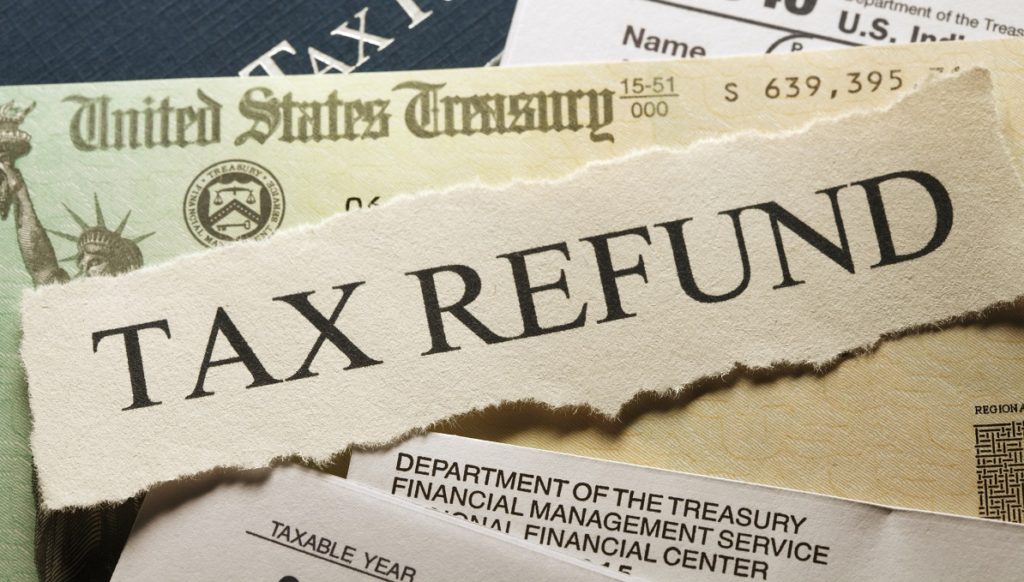3 Financially Smart Things to Do with Your Tax Refund

In a recent survey about the Top Things Most People Do With Tax Refunds – according to the IRS, the average tax refund is $3,000. Of course that’s an average, so a lot of people don’t get any money back—or have to dig in and pay.
The survey said that the top several responses from 5,000 adults across the US were as follows:
- I do not receive a tax refund
- Make a major purchase (necessity)
- Pay off debt (loans, credit card, etc.)
- Put money in savings
- Put money toward a vacation
- Splurge on a purchase (luxury)
If you are among those who expect a refund, you might be considering how you can use this lump sum in the best possible way.
Here are three suggestions:
- Create an emergency fund. Studies say that a large percentage of Americans lives on a razor thin financial edge. This means that if they have a big car repair or unexpected medical bill, it could mean dipping into debt. Having just $1,500-$3,000 set aside in a separate account that isn’t ever touched except in cases of real emergency can make the difference between financial peace and constant stress.
- Pay off debts. Once you have established a small (but important) emergency fund, the next best thing most people can do is pay off balances. I generally recommend picking the smallest balances with the highest monthly payments as a place to start. In other words, if you have a car loan that is down to $1,200 but the monthly payment is $265, paying that loan off will free up $265 in immediate cash flow—which can then be applied to the next balance. I can discuss this strategy in more detail if you would like to talk about ways of eliminating debt more quickly.
- Plan ahead. Assuming that you have an emergency fund and your overall debt load is under control, it can make a lot of sense to sit down and plan for either longer-term savings or for an upcoming expense such as a vacation or wedding.
The fact is, if you dump the tax refund into your checking account and just leave it there, it is likely to get whittled away within months—rather than being deployed toward items that will make a significant difference in your financial picture.


Comments are closed.